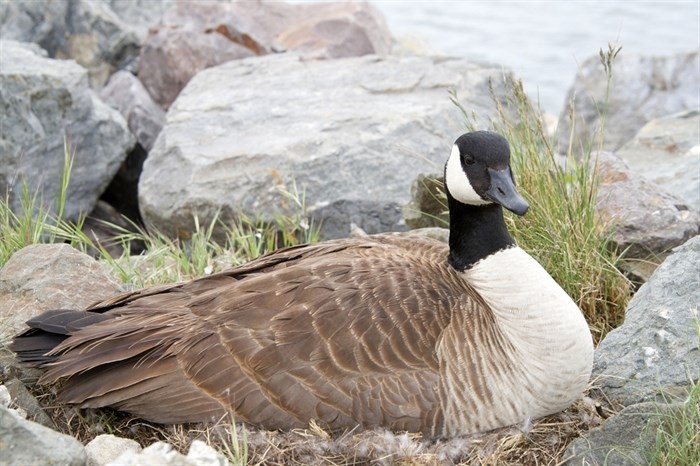
Okanagan Valley Goose Management Program Manager Kate Hagmeir says the program is expected to get underway around the end of March this year.
Image Credit: SHUTTERSTOCK
March 09, 2017 - 5:30 PM
PENTICTON - This year’s unseasonably cold start doesn't appear to have had an effect on the valley’s goose population as breeding season approaches and the wildlife management team that handles them is ready to begin their operation.
Okanagan Valley Goose Management Program Manager Kate Hagmeir says program field personnel started the pair surveys this month.
“They are pairing now, so we’re planning to start the program in the south end of the valley in Osoyoos at the end of March, as long as the weather isn’t a factor,” Hagmeir says.
Egg addling is a method of wildlife management that involves shaking the eggs or coating them with a food grade corn oil within 14 days of incubation, making them non-viable.
The program began in the mid-1990s in response to burgeoning populations of non-native, non-migratory geese that were proliferating in the valley.
Hagmeir says the geese were introduced as a conservation measure in the 1970s and never had an opportunity to learn migratory patterns. The geese are a hybrid of several stocks, and are considered a nuisance and health threat because they eat valuable crops, cause water contamination from goose droppings and pose a threat to aviation.
After looking at peak nest rates and pairing trends data, Hagmeir is finding Okanagan geese "seem to have their timing down pat,” as far as the mating and laying season goes.
“Last year was a long season, but we’ve noticed the weather impacts more on the end of the season than the beginning. It’s like the geese have a sort of biological end date,” she says.
Even with this year’s weather so far, the program is set to begin by the end of this month.
“Maybe not 10 hours a day on the ground, but we will be getting started, unless there are health and safety issues associated with weather conditions,” she says.
Field trips to upper lakes such as Twin Lakes will likely be put off until later in the season.
Hagmeir says the geese don’t usually have a problem foraging, but if they have had issues this winter because of weather conditions, program field workers may see that through a reduction in eggs produced.
“There’s usually enough forage for them to munch on. I’ve been poring over data, but that’s on the computer screen. Our field work will show us if weather has had an impact on the geese this year,” she says.
To contact a reporter for this story, email Steve Arstad or call 250-488-3065 or email the editor. You can also submit photos, videos or news tips to the newsroom and be entered to win a monthly prize draw.
We welcome your comments and opinions on our stories but play nice. We won't censor or delete comments unless they contain off-topic statements or links, unnecessary vulgarity, false facts, spam or obviously fake profiles. If you have any concerns about what you see in comments, email the editor in the link above.
News from © iNFOnews, 2017